Views: 21
How to Choose the Right Diapers for Your Baby as A Nigerian Parent
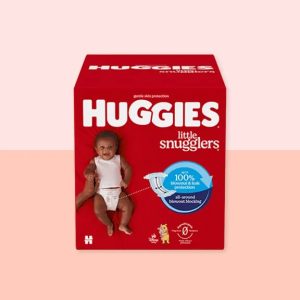
As a Nigerian parent, one of the most important decisions you’ll make in your baby’s early months is choosing the right diapers. With so many brands and types of baby diapers available in Nigeria—from Huggies, Pampers, and Molfix to local affordable options—picking the best one can feel overwhelming. The truth is, the right diaper goes beyond price; it’s about comfort, absorbency, skin-friendliness, and even availability in your local market. Finding the best diaper for your baby is important for their well-being, happiness, and your confidence as a parent. With so many options in Nigeria, it can be tricky to know which one is the best. In this guide, we’ll help you understand what to look out for so you can make the best choice for your baby’s health, comfort, and your budget.
What Are Different Types of Baby Diapers?
As a parent, it’s important to know the different types of baby diapers available. While there are many options, they mainly fall into these categories:
- Pull-Ups
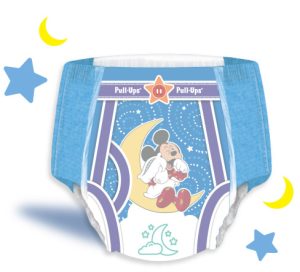
When your child is ready to start using the potty on their own, try pull-up underwear. They are easy for children to pull up and down by themselves. These diapers look and feel like normal underwear, and some even signal when they get a little wet. This way, your child learns when it’s time to use the bathroom.
- Cloth Diapers
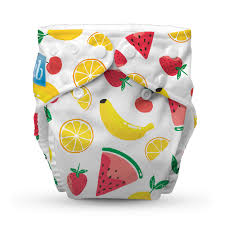
Cloth diapers are becoming more popular because they are good for the environment and save money. Made from soft fabrics like cotton, bamboo, or hemp, cloth diapers come in different types, such as prefolds, fitted diapers, and pocket diapers.
One major advantage of cloth pampers is that they can be reused. Unlike disposable pampers, you can wash and use them many times, which helps reduce waste and lower your carbon footprint.
Cloth pampers are also great for your baby’s skin. They let air flow better, which reduces the risk of sunburn by keeping the skin cool and dry.
- Disposable Diapers
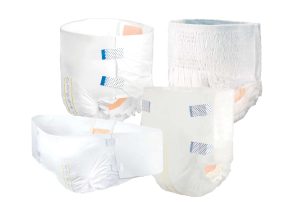
Disposable diapers are diapers you throw away after one use. They have an absorbent pad inside, which is made of chemical crystals that soak up liquid and turn it into gel.
Your baby can wear disposable diapers for longer periods without discomfort. Some disposable diapers even offer overnight protection, giving extra absorption and comfort.
- Fitted Diapers
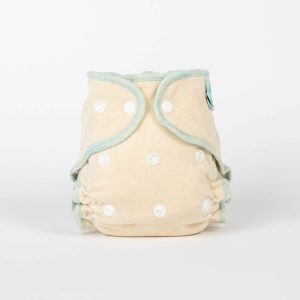
Fitted diapers are like disposables but have a narrower crotch and wider wings that wrap around your baby’s waist. Some use fasteners, snaps, or Velcro to close.
Some fitted diapers also have stretchy waists and legs, along with extra absorbent layers in the middle.
- Pocket Diapers
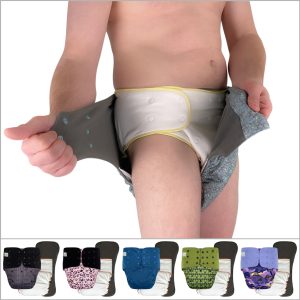
Pocket diapers have a waterproof outer layer, similar to all-in-one diapers. They have a pocket where you can add a folded pampers or a washable liner. These diapers typically use snaps or Velcro to stay securely closed.
Disposable vs. Cloth Diapers: Which One Is Right for You?
There isn’t a right or wrong answer because both types of diapers have their benefits, and it really comes down to what works best for each family.
Disposable diapers are designed to absorb moisture quickly, which helps keep your baby’s skin dry. This feature is useful, especially for busy parents who don’t want to change pampers as often. However, it can also make it harder for parents to tell how much their baby is urinating. This could lead to missing signs of dehydration, which can be a concern if not noticed early.
On the other hand, cloth pampers are often more comfortable for babies, as they are made from natural fabrics that are gentle on the skin. They can also help prevent diaper rashes since they allow the skin to breathe better. However, cloth diapers are not as absorbent as disposable ones, so they need to be changed more often. This can mean more frequent washing and diaper changes for parents.
10 Factors to Consider When Choosing Diapers as a Nigerian Parent
Choosing the right diapers for your baby as a Nigerian parent requires considering a few important factors to make sure they fit well and work properly. Here are ten factors to consider when choosing diapers for your child as a Nigerian parent:
- Baby’s Age and Size
Every baby is different, so picking the right diaper size is very important. Diaper manufacturers usually offer size guidelines based on your baby’s weight and age. Make sure the diaper fits snugly around your baby’s waist and legs to avoid leaks and keep them comfortable. As your baby grows, you’ll need to move to larger sizes to get the best fit.
- Comfort and Fit
Comfort and fit are also very important. Look for diapers made from soft, breathable materials that won’t irritate your baby’s skin. Diapers with stretchy waistbands and leg cuffs fit securely without being too tight. Adjustable tabs help you get the right fit as your baby grows. Make sure the diaper isn’t too tight or too loose to avoid discomfort and leaks.
- Utility
As a Nigerian parent, before buying diapers, you should consider your baby’s needs and their own lifestyle. If you have a busy routine and need convenience, disposable diapers might be the best choice. They are easy to use and save time. However, if your baby needs frequent diaper changes, it’s a good idea to invest in a high-quality, durable brand. These might cost more upfront, but can offer better performance and last longer, making them a good choice for parents who want a reliable option for frequent use.
- Absorbency
One of the main jobs of diapers is to keep your baby dry by absorbing urine and preventing leaks. Think about your baby’s bathroom habits when choosing diapers. If your baby wets a lot or sleeps for longer periods, choose diapers with high absorbency to keep them dry and comfortable. Some brands offer special diapers for overnight use, which have extra absorbency and protection against leaks.
- Softness and Stretchiness of the Diaper
Diapers made from soft, flexible materials like nonwoven fabrics or natural materials are gentle on your baby’s skin. Since babies have sensitive skin, choosing a diaper that is ultra-soft helps keep them comfortable.
- Skin Sensitivity
Since babies have delicate skin, it’s important to pick diapers that are gentle and safe. Choose diapers that are free from fragrances, lotions, and harsh chemicals to avoid skin irritation or allergies. Diapers labeled as “hypoallergenic” or “dermatologist tested” are often made for sensitive skin. If your baby has a history of skin allergies or eczema, talk to your pediatrician for advice on the best diapers.
- A Wetness Indicator on the Diaper
One helpful feature in diapers is the wetness indicator. This blue line changes to yellow when the diaper becomes wet, making it easy for parents to see when it’s time for a change. It’s a simple but useful tool to help keep your baby comfortable and dry.
- Convenience and Lifestyle
When choosing diapers, think about your lifestyle and what’s most convenient for you. Disposable diapers are very easy to use, especially when you’re out and about or traveling. They don’t need to be washed and can be thrown away after use. Cloth diapers, on the other hand, need more care, like washing and cleaning, but they’re a good choice for parents who want to help the environment. They are reusable, save money over time, and are better for the planet. Consider your needs and daily routine to decide which type of diaper works best for you.
- Softness
When choosing a diaper for your baby, it’s important to pick one made from soft and airy materials. This helps keep your baby’s bottom comfortable and allows air to flow freely, which can prevent rashes and irritation. A diaper that lets the skin breathe is much better for your baby’s well-being.
- Cost
Choosing the right diaper is also important for you as a parent, not just for your baby. Since you’ll be buying them and changing them every day, it helps to think about how much you want to spend and what makes diaper changes easier for you. While cost matters, it’s better to focus on the value—what you’re getting for the money.
By keeping these things in mind, you can pick diapers that give your baby great comfort, protection, and ease of use. Making the right choice can make your daily routine smoother and parenting more enjoyable.
Helpful Tips for Diapering: What to Do and What to Avoid
Taking care of your baby’s diaper needs requires the right steps to keep them clean, safe, and comfortable.
Here are some simple tips you should follow:
What You Should Do
- Be gentle when cleaning your baby during diaper changes.
Use soft wipes or a wet cloth to clean the pampers area carefully. If you have a baby girl, always wipe from front to back to help stop bacteria from spreading.
- Let your baby have some time without a diaper.
This gives their skin a chance to breathe and helps prevent pamper rashes. You can lay a soft towel or blanket on a safe spot and let your baby move around and stretch without a pamper for a little while.
- Make sure to change your baby’s pamper often.
Check the diaper regularly and change it as soon as it’s wet or dirty. This keeps your baby clean, dry, and helps stop diaper rashes from happening.
- Always use the right way to put on a pamper.
Make sure the diaper fits well—it should be snug but not too tight around your baby’s waist and legs.
- Always keep your hands clean during diaper changes.
Wash your hands before and after changing your baby’s diaper. This helps keep things clean and stops germs from spreading.
What To Avoid
- Avoid using strong products on the diaper area.
Stay away from items with strong smells, alcohol, or extra chemicals, as they can irritate your baby’s skin and cause allergic reactions.
- Always check for signs of pamper rash.
Look at your baby’s pamper area often for redness, bumps, or irritation. If you see any, take action quickly to treat and prevent them.
- Make sure to dispose of Pampers properly.
For disposable pampers, wrap them tightly in a plastic bag and put them in the right bin. For cloth diapers, wash and sanitize them correctly.
Conclusion
Finding the right diaper takes some trial and error, but knowing the options and what to look for can help. Whether you choose disposable or cloth diapers, the main goal is to keep your baby dry, comfortable, and happy.
By kingkentus

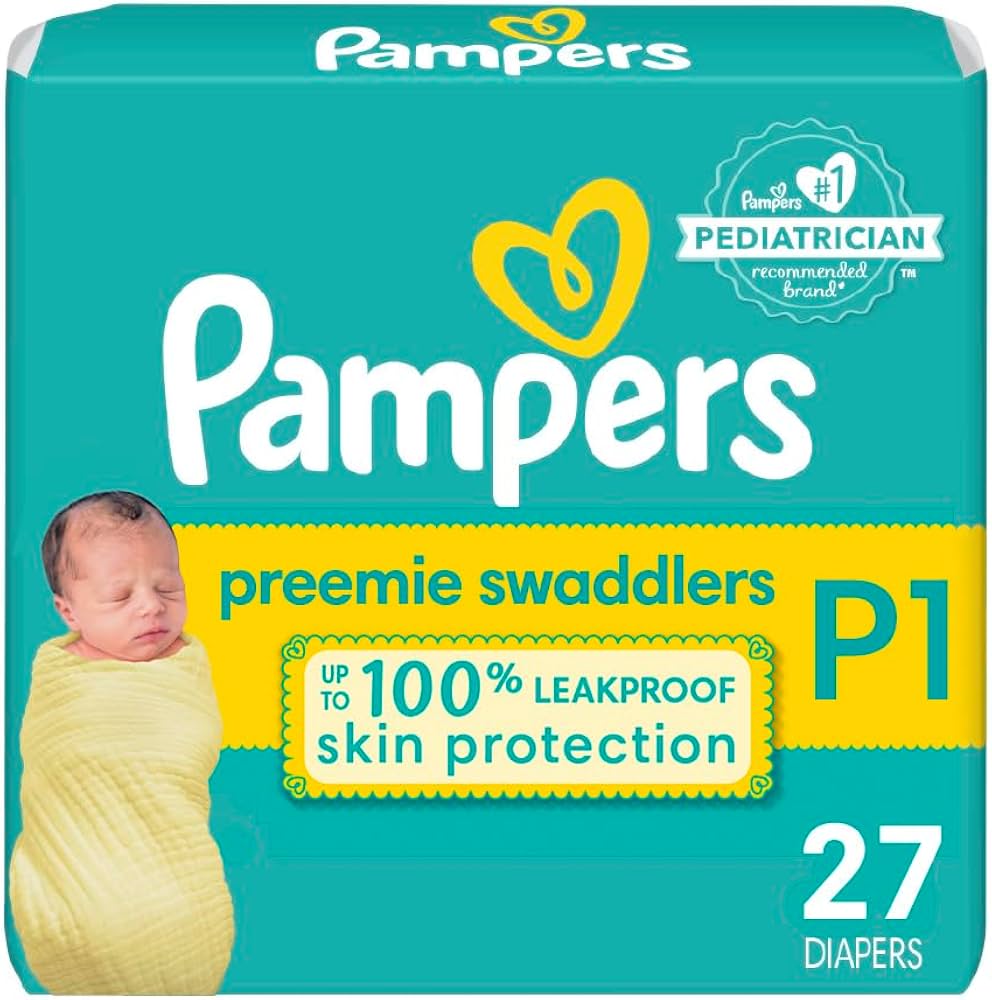
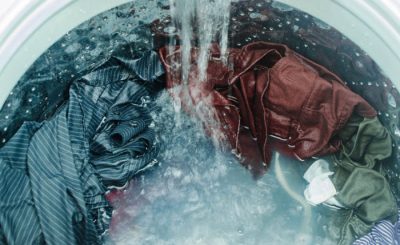
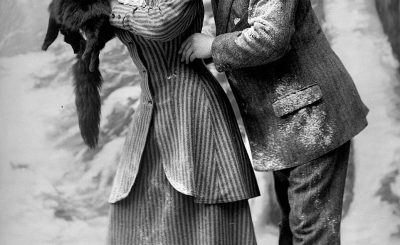
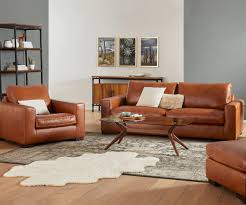
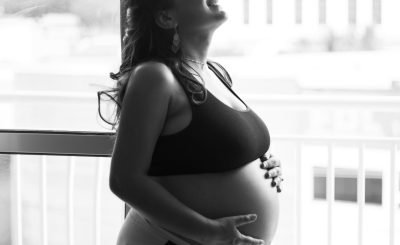


You must be logged in to post a comment.